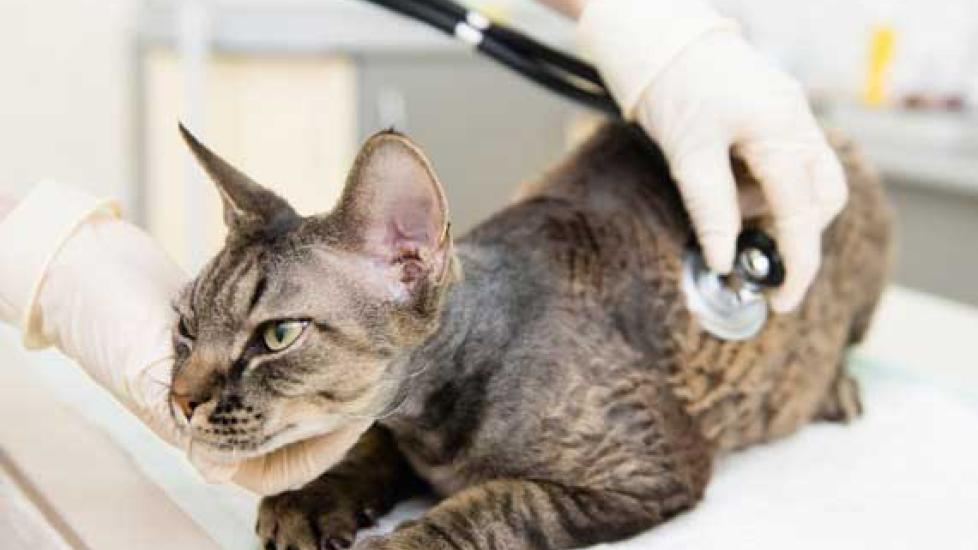Heart Disease Does Not Have to be a Death Sentence
Hypertrophic cardiomyopathy, or HCM, is the most common heart disease diagnosed in cats. It is a disease that affects the heart muscle, causing the muscle to become thickened and ineffective in pumping the blood through the heart and the rest of the body.
Cats suffering from cardiomyopathy are most often middle-aged to older cats. However, it is not impossible to see the disease in younger cats as well. It affects both males and females. Though any cat can develop HCM, some breeds are known to have a genetic predisposition to the disease. Currently, there are genetic tests that can detect the gene mutation responsible for HCM in Maine Coons and Ragdolls.
Cases of hypertrophic cardiomyopathy vary from mild to life-threatening. Symptoms seen include lethargy, decreased activity level, rapid and/or labored breathing, and possibly open mouth breathing, especially with excitement or exercise. Sometimes abdominal distention (ascites) is seen as well. Other signs that may be seen are sudden weakness and episodes of collapse. Unfortunately, sudden death is also a possibility in cats with HCM.
Recommended Pet Products
In some cats with HCM, a blood clot may form and lodge at the end of the aorta, causing weakness or paralysis of the rear legs. This is an extremely painful condition for the affected cat and a serious complication of HCM.
Diagnosis of hypertrophic cardiomyopathy relies on a thorough physical examination by your veterinarian. Radiographs of your cat’s chest and an echocardiogram (an ultrasound of the heart) is usually performed to visualize the heart and heart muscle. Blood testing and other diagnostic testing may be necessary to rule out other disease.
Treatment of hypertrophic cardiomyopathy should be tailored to the individual cat. For cats suffering from congestive heart failure as a result of HCM, diuretics such as furosemide are usually the first line of treatment. ACE-inhibitors such as enalapril or benazepril are sometimes used to treat the heart condition as well. Other medications that may be prescribed by your veterinarian include diltiazem, atenolol, or propranolol.
In cats at risk of clot formation, anticoagulants such as aspirin or clopidogrel may also be prescribed. Be sure to follow your veterinarians directions closely with any medications prescribed for your cat.
The prognosis for cats with hypertrophic cardiomyopathy varies depending on the severity of the disease. The course of the disease can be quite variable as well. Some cats may develop only mild hypertrophy (thickening of the heart muscle) and suffer little compromise of heart function, while others progress to more severe disease. HCM may worsen quickly over a period of months, or it may progress slowly over several years. Its severity may not change for many years and then suddenly worsen. Some cats with HCM die very suddenly even though they previously had no clinical signs of heart disease.
Cats with a mild form of HCM may survive and live a relatively normal life for a period of many years. Cats with more severe disease carry a more guarded prognosis. Once signs of heart failure develop, the prognosis becomes worse.
Cats with hypertrophic cardiomyopathy must be observed closely at home and should be monitored through regular veterinary examinations as well.
Have you lived with, or are you currently living with, a cat with hypertrophic cardiomyopathy? How are you managing your cat’s disease?

Dr. Lorie Huston
Image: Ermolaev Alexander / Shutterstock
